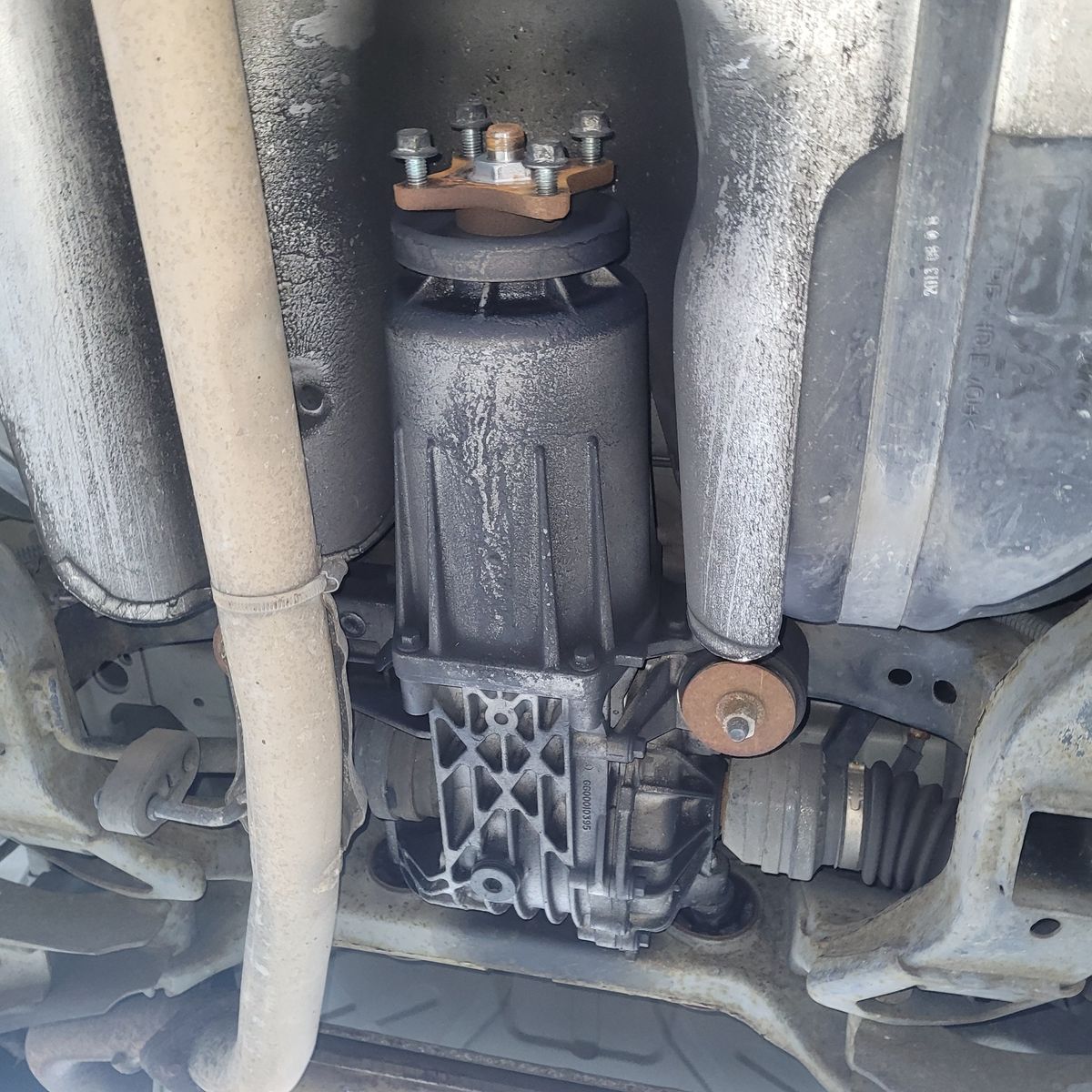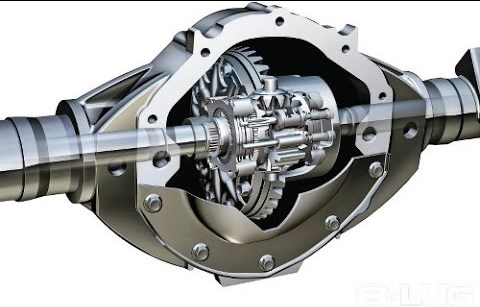What does the differential (diff) do?
When you make a turn in your car, the wheels on the outside have to spin further than the wheels on the inside. This is because they travel a further distance. The differential (also known as a diff) is what allows two wheels to operate independently at different speeds, preventing skidding and other problems. Inside the differential (diff) is a set of gears that adjusts the rotational speed of each wheel, allowing for smoother and easier turning of the car.
In a front-wheel drive, the differential (diff) is usually integrated into the transmission and remains lubricated with the differential oil. This means that if there is a lack of differential oil, a lot of strain will be put on the differential and premature wear may occur. Problems with the differential can also be caused by old age and wear over time.
Learn more about how the differential works >
Symptoms of differential (diff) problems:
- Whining or howling noises – One of the most common symptoms of differential problems is a whining or howling noise. This noise may be most noticeable when the car is accelerating or decelerating, and it may change pitch as the car’s speed changes.
- Grinding or clunking noises – Another common symptom of differential problems is a grinding or clunking noise. This noise may occur when the car is turning or when there is a sudden change in speed.
- Difficulty turning – If the differential is not working correctly, it can cause difficulty when turning. This may be especially noticeable when making sharp turns or when driving at low speeds.
- Increased tyre wear – If the differential fails, your tyres will be moving at the same speed when turning around corners. This will lead to the inner tyres wearing a lot more quickly. If you are often having to replace tyres, the differential could be the issue.
Tyre replacement in Hamilton - Vibrations – If your differential’s mounting joints or connecting drive shaft universal joints become worn or damaged, you will most likely experience vibrations while driving. These vibrations will usually intensify as your accelerate.
- Reduced speeds and performance – When there are problems with the differential, it can cause reduced performance and power delivery. This can result in slower acceleration and decreased overall performance.
Can you drive safely with differential problems?
Driving with differential problems is not recommended as it can pose a risk to your safety and the safety of others on the road. This is because it affects the control you have over your vehicle, especially at high speeds.
If you continue to drive with a faulty differential, it can cause further damage to the drivetrain system, which can lead to more expensive repairs. Additionally, a malfunctioning differential can compromise your ability to control the car, especially during turning or sudden changes in speed. This can increase the risk of accidents and can put you and other drivers on the road in danger.
New Differentials (Diff) Replacement in Hamilton
Is your car in need of a differential (diff) replacement? If so, we can help! At Grimmer Motors, our team of skilled mechanics can replace your car’s differential for you. This will allow for comfortable turning and acceleration, as well as decreased wear on components such as your tyres. We can also replace the differential (diff) oil prolonging your differential (diff’s) life.
For differential (diff) servicing and replacement in Hamilton, contact Grimmer Motors today!
Please Note – we don’t generally stock or supply just “parts only” for this service. We are a general automotive repair workshop. If you are able to bring your vehicle to us, we can diagnose the problem, find and fit the necessary parts, or organise the appropriate service for you.


